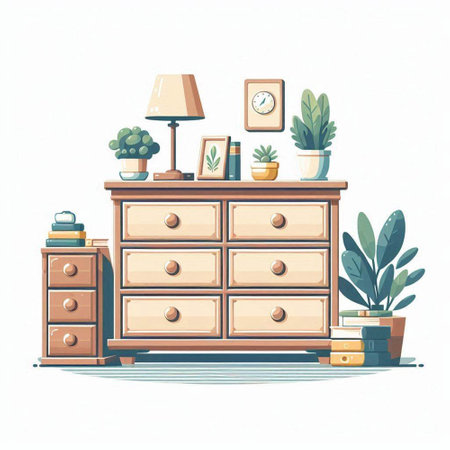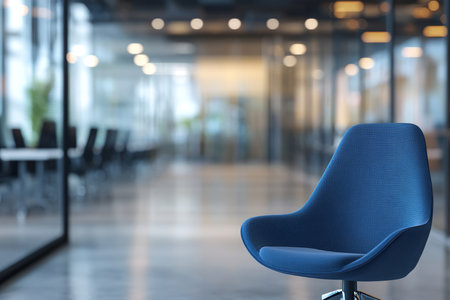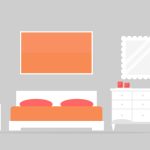Introduction: Why Organization Matters
In today’s fast-paced American lifestyle, the way we organize our homes and workplaces has a direct impact on how productive we are. Imagine walking into a cluttered kitchen where you can’t find your favorite coffee mug, or sitting at a desk piled high with paperwork—your motivation to get things done drops instantly. On the other hand, when every item has its place and you know exactly where to find what you need, tasks feel more manageable and stress levels decrease. In both suburban households and bustling corporate offices across the U.S., real-life experiences show that thoughtful shelving and storage solutions do more than just save space; they create an environment that encourages focus, efficiency, and peace of mind. By exploring the psychology behind organization, we can better understand why investing in smart storage isn’t just about aesthetics—it’s about building a foundation for greater productivity and overall well-being.
2. The Psychology Behind Clutter and Order
Numerous psychological studies highlight the profound impact that our physical environment has on our mental state, particularly when it comes to clutter versus organization. Researchers from Princeton University Neuroscience Institute found that physical clutter in your surroundings competes for your attention, resulting in decreased performance and increased stress. On the other hand, an organized environment—achieved through intentional shelving and storage solutions—can foster a sense of control, leading to improved focus, clarity, and productivity.
The Mental Toll of Clutter
Clutter is more than just an eyesore; its a source of cognitive overload. When you’re surrounded by disorganized piles or overflowing shelves, your brain is constantly processing visual stimuli, making it difficult to concentrate on tasks at hand. This phenomenon is especially relevant in American workspaces, where open-concept offices and home offices are common. According to research published in the journal Current Psychology, people who describe their homes as cluttered experience higher levels of cortisol—the body’s primary stress hormone—throughout the day.
Benefits of Orderly Spaces
In contrast, organized spaces have been shown to promote positive emotions and greater productivity. A tidy office or living area not only reduces anxiety but also encourages creative thinking and problem-solving. Shelving units and storage bins help compartmentalize items, making it easier to find what you need and keep distractions at bay. For Americans balancing remote work and family life, efficient storage solutions are essential tools for maintaining mental well-being.
Clutter vs. Organization: Psychological Effects Table
| Environment | Mental Impact | Productivity Effect |
|---|---|---|
| Cluttered | Increased stress, reduced focus | Lower efficiency |
| Organized (with shelving & storage) | Mental clarity, sense of control | Improved productivity |
Shelving and Storage as Cognitive Tools
Shelving isn’t just about aesthetics—it’s a practical strategy for reducing cognitive load. By assigning every item a specific place, you’re minimizing decision fatigue and streamlining daily routines. Whether it’s installing floating shelves in a small apartment or using labeled bins in a garage, these organizational tactics can make a significant difference in both your mood and output. Ultimately, embracing effective shelving and storage is about creating an environment where your mind—and your work—can thrive.

3. Practical Storage Solutions for American Lifestyles
When it comes to boosting productivity through organization, Americans have embraced a range of innovative shelving and storage solutions tailored to fit busy, modern lifestyles. In today’s homes, maximizing space isn’t just about tidiness—it’s about creating an environment that supports efficiency and reduces stress. One of the most notable trends is the rise of multipurpose furniture. Pieces like storage ottomans, beds with built-in drawers, and coffee tables that double as workstations offer smart ways to keep clutter at bay while making the most of every square foot. These versatile items are especially popular in urban apartments and smaller homes, where space is at a premium.
Another major trend shaping American organization habits is the focus on garage organization systems. Traditionally seen as catch-all spaces, garages are increasingly being transformed into highly functional areas with custom shelving units, wall-mounted racks, and modular cabinets. Brands like Gladiator and Elfa have gained popularity by offering customizable options that cater to everything from sports equipment to gardening tools. This shift not only frees up valuable living space but also makes it easier for families to access what they need quickly—an essential factor for maintaining daily productivity.
Open shelving in kitchens and living rooms is another sought-after choice, reflecting a preference for both accessibility and aesthetic appeal. Americans love displaying favorite books, décor, or cookware on sturdy floating shelves, striking a balance between practical storage and personalized style. By integrating these popular trends into everyday life, households across the U.S. are finding that organized environments do more than look good—they actively support better focus, smoother routines, and higher overall productivity.
4. Boosting Productivity at Home and Work
In the fast-paced world of American life, both at home and in the workplace, staying organized isn’t just about aesthetics—it’s about creating an environment that supports productivity and well-being. Well-designed shelving and storage solutions do more than clear clutter; they actively enhance efficiency, reduce stress, and encourage better work habits.
The Impact of Organized Spaces on Efficiency
When everything has its place, you spend less time searching for documents, tools, or household essentials. Whether you’re managing a remote work setup in your living room or sharing a bustling office with coworkers, organized shelving allows you to access what you need quickly. In American homes, open-concept layouts are common, making it even more crucial to maintain order through smart storage.
| Setting | Common Challenges | Organizational Solution | Result |
|---|---|---|---|
| Home Office | Piles of paperwork | Labeled file shelves and bins | Faster retrieval, less distraction |
| Kitchen | Overcrowded counters | Wall-mounted racks and pull-out shelves | Easier meal prep, reduced stress |
| Workplace Cubicle | Limited space for supplies | Vertical shelving units | Improved focus and workflow |
| Garage/Basement | Mixed-use storage chaos | Zoned shelving by activity/type | Simplified projects, safer access |
Reducing Stress Through Orderliness
A cluttered space can contribute to feelings of overwhelm and anxiety—a common concern for Americans balancing busy schedules. Studies show that people feel calmer and more in control when their surroundings are tidy. Strategic shelving helps manage visible items while keeping everyday necessities within easy reach. For families, this means less morning chaos; for professionals, it creates a setting where deep work is possible.
Cultivating Better Work Habits with Storage Solutions
The right organizational systems support positive routines. For instance, designated mail sorters prevent bills from getting lost. Adjustable bookshelves encourage regular decluttering and prioritization of resources. In open-plan offices popular across the U.S., shared shelving creates communal zones that foster teamwork while maintaining individual boundaries. By aligning storage solutions with daily tasks—like placing charging stations near desks or hooks by entryways—Americans set themselves up for ongoing productivity gains.
5. Designing Spaces for Lasting Organization
Creating a storage system that truly works for your lifestyle isn’t just about buying shelves or bins—it’s about designing spaces that support long-term organization and productivity. In American apartments, homes, and offices, every square foot matters, so maximizing utility while maintaining comfort is key. Here are some practical tips to design functional storage systems that blend seamlessly into everyday life, with a strong emphasis on sustainability and user-friendliness.
Choose Multi-Functional Furniture
Opt for pieces like ottomans with hidden compartments, beds with built-in drawers, or desks with integrated shelving. These solutions offer ample storage without sacrificing valuable living or working space—perfect for compact city apartments or busy home offices.
Embrace Vertical Storage Solutions
Wall-mounted shelves and tall bookcases make use of vertical space, reducing clutter at eye level and freeing up floor area. Consider adjustable shelving to accommodate changing needs over time—a must in dynamic work environments and growing households.
Prioritize Accessibility and Visibility
Keep frequently used items within easy reach and visible whenever possible. Transparent bins, labeled containers, or open shelving help ensure you can quickly find what you need, reducing frustration and saving time during busy days.
Sustainable Choices Matter
When selecting storage products, look for options made from recycled materials or sustainably sourced wood. Reusing vintage furniture, repurposing crates, or choosing modular systems that adapt as your needs change also supports eco-friendly living—a growing priority in American culture.
Simple Systems Win
The best organizational systems are intuitive and easy to maintain. Avoid overly complicated setups; instead, use color coding, clear labels, and consistent placement rules to encourage everyone in the home or office to participate in keeping spaces tidy. Remember: lasting organization comes from habits built on straightforward solutions tailored to your unique environment.
6. Conclusion: Transforming Your Environment, Transforming Your Mindset
Ultimately, the way we organize our spaces—whether at home or in the workplace—has a powerful psychological impact on our productivity and overall well-being. Thoughtfully designed shelving and storage systems do far more than keep things tidy; they help reduce mental clutter, foster focus, and create an environment where creativity and efficiency can thrive. By understanding the psychology of organization, we recognize that our surroundings shape our habits, mood, and even motivation. The key takeaways are simple but impactful: prioritize accessible storage, declutter regularly, and tailor your organizational systems to fit your unique workflow. Don’t underestimate the value of a well-organized space—it’s not just about aesthetics; it’s about setting yourself up for success every day. Take the first step today by evaluating your current setup and implementing small changes that align with your goals. Transforming your environment is the first move toward transforming your mindset and unlocking your full potential.


